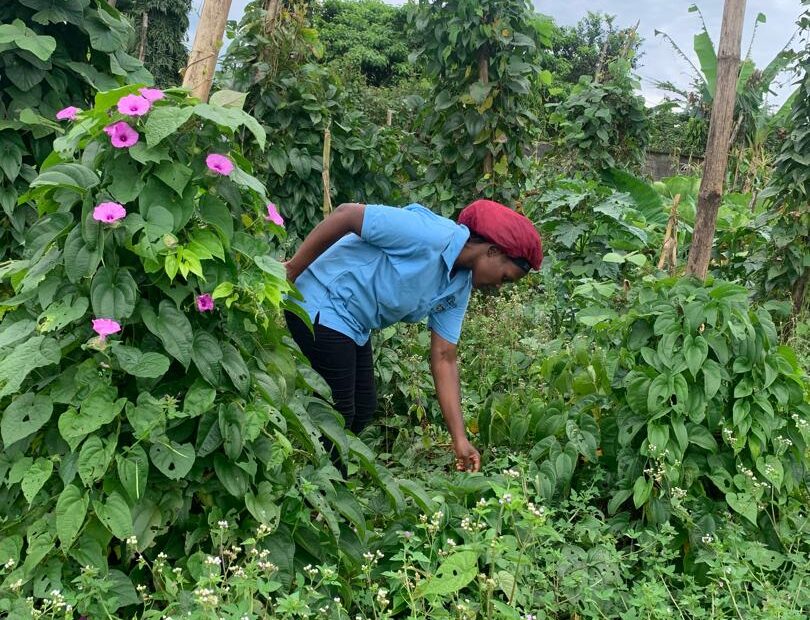- Improved Food Security: The garden provides a reliable source of fresh, nutritious food, reducing dependence on external food sources and enhancing the overall food security of the community.
- Nutritional Diversity
With a variety of crops such as cassava, yams, vegetables, and legumes, families can enjoy a more balanced and diverse diet, which is essential for improving health and reducing malnutrition. - Economic Opportunities
Surplus produce can be sold at local markets, providing an additional source of income for families. This economic boost can help cover essential expenses such as education and healthcare. - Community Cohesion: The collaborative nature of the garden project fosters a sense of community. Residents work together, share knowledge, and build relationships, strengthening social ties and community resilience.
- Skill Development
Participants gain valuable skills in sustainable farming practices, which can be applied both within the community garden and in their own households, improving overall agricultural productivity. - Environmental Awareness
Engaging in sustainable farming techniques raises awareness about environmental conservation and the importance of biodiversity, leading to more environmentally friendly practices in the community. - Empowerment
The project empowers community members, particularly women, by involving them in decision-making processes related to food production and resource management, enhancing their roles within the community. - Health Benefits
Access to fresh produce contributes to better health outcomes by providing essential vitamins and minerals, which can lead to reduced rates of diet-related diseases. - Cultural Preservation
Growing traditional crops helps preserve local agricultural practices and cultural heritage, maintaining food traditions that are important to the community’s identity. - Resilience to Climate Change
By practicing sustainable farming techniques, the community becomes more resilient to climate-related challenges, such as droughts or floods, ensuring a more stable food supply.
Overall, the community garden serves as a vital resource that not only enhances the physical well-being of its members but also promotes economic stability, social cohesion, and environmental sustainability.
